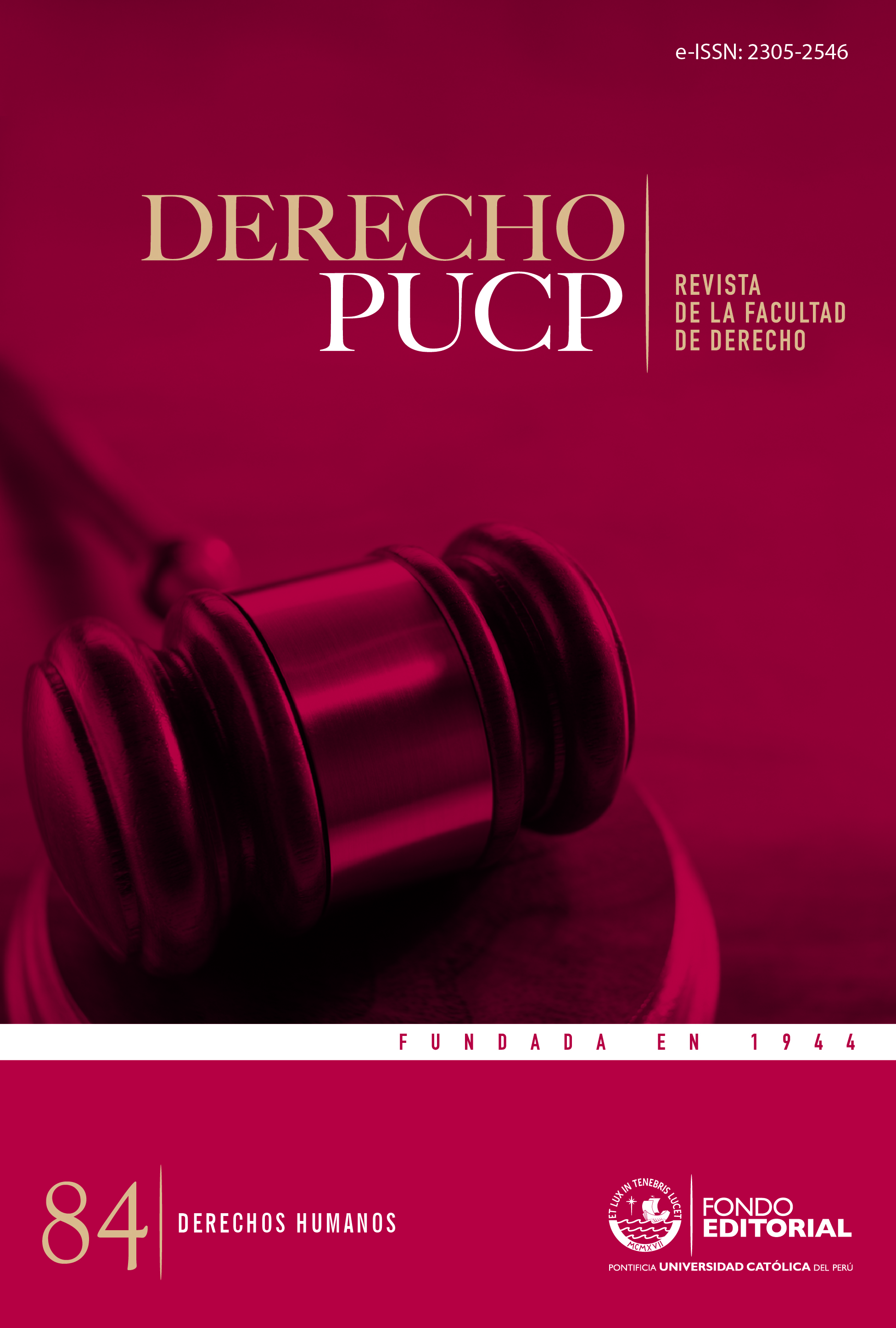La protección de datos personales y el derecho al olvido en el Perú. A propósito de los estándares internacionales del Sistema Interamericano de los Derechos Humanos
DOI:
https://doi.org/10.18800/derechopucp.202001.009Palabras clave:
Derecho al olvido, Privacidad, Libertad de expresión, Datos personales, DesindexaciónResumen
En el año 2014 el Tribunal de Justicia de la Unión Europea reconoció el derecho al olvido a partir de la interpretación de un marco normativo relativo a la protección de datos personales. Con el paso del tiempo, muchos países de América Latina, incluyendo el Perú, han promulgado leyes que regulan el tratamiento de datos personales. La Dirección de Protección de Datos Personales del Perú, a partir de la entrada en vigencia de la Ley N° 29733, Ley de Protección de Datos Personales, ha reconocido el ejercicio del derecho al olvido y ha ordenado la desindexación de contenido de motores de búsqueda.
Por otro lado, en el Sistema Interamericano de Derechos Humanos, a través de la Relatoría Especial para la Libertad de Expresión, se ha rechazado este derecho. Ello debido a que, tal y como ha sido concebido en el sistema europeo, estaría restringiéndose de manera ilegítima la libertad de expresión. El presente artículo tiene como objetivo analizar el contenido desarrollado del derecho al olvido, así como las limitaciones que deben observarse al momento de su reconocimiento. Asimismo, se evidenciarán los retos a los que se enfrenta este derecho en el sistema normativo peruano, tomando en cuenta los criterios adoptados por el Tribunal Constitucional, así como los adoptados dentro del Sistema Interamericano de Derechos Humanos.




